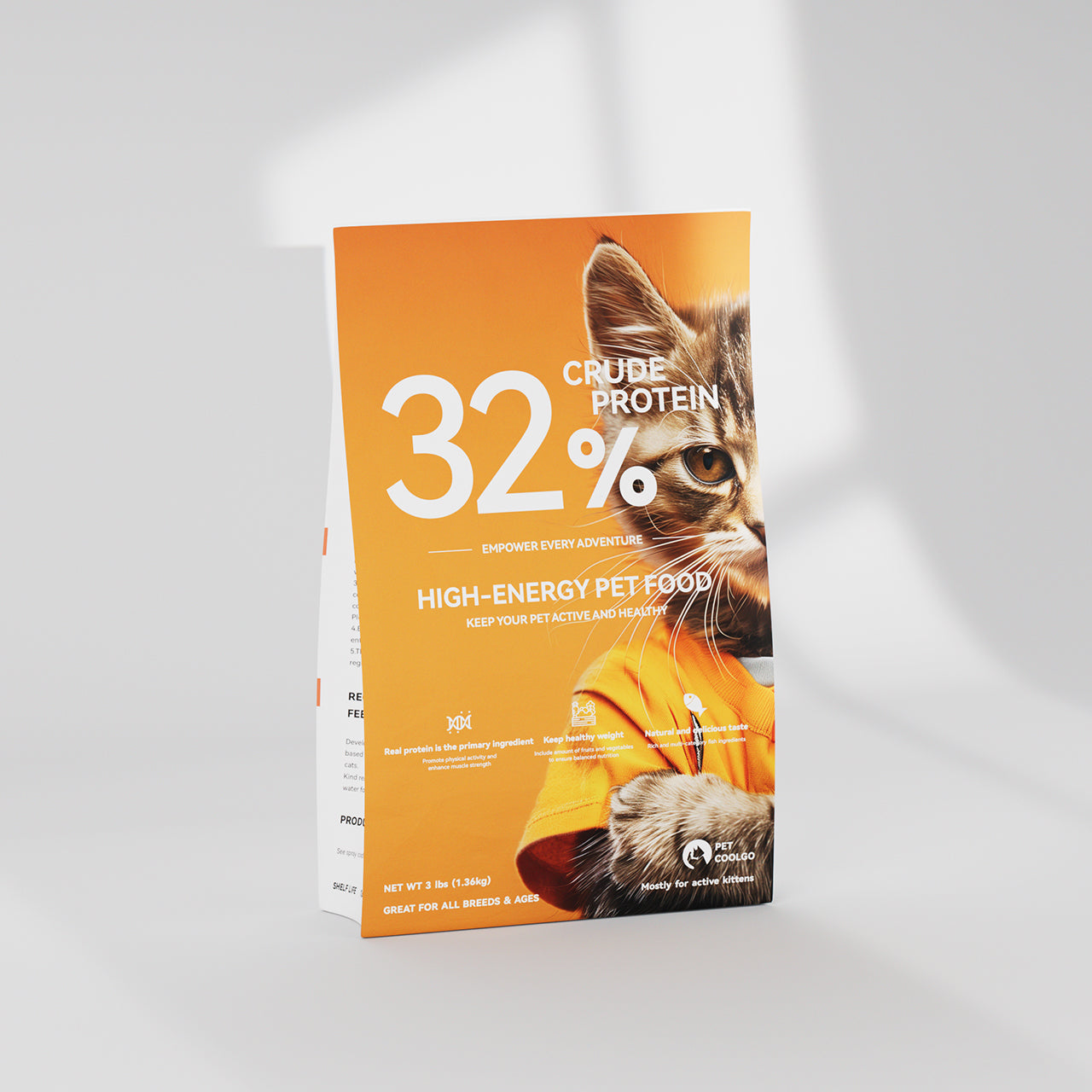Unlock the Secrets to Supercharged Kittens with These High Protein Delights!
When it comes to nurturing the growth and development of your beloved kitten, nutrition plays a pivotal role. The first few months of a kitten's life are crucial, as they undergo rapid growth and require specific nutrients to thrive. Among these nutrients, protein stands out as a cornerstone of kitten health. High protein diets are gaining traction among pet owners, who are increasingly aware of how vital the right nutrition is for their furry friends. It’s not just about filling their bowls; it’s about providing them with the fuel they need to grow strong, playful, and healthy. As a pet owner myself, I’ve witnessed this transformation firsthand with my friend’s kitten, who flourished on a high protein diet, showcasing boundless energy and a shiny coat. This article will delve into the world of high protein kitten food, exploring its benefits, how to choose the right kind, and much more!

Understanding Kitten Nutrition
Kittens have unique nutritional needs that differ significantly from adult cats. They require a balanced diet rich in proteins, fats, vitamins, and minerals to support their rapid growth and development. Protein is essential for building and repairing tissues, producing enzymes and hormones, and supporting a healthy immune system. It's important to note that not all protein sources are created equal. Animal-based proteins, such as chicken, fish, and beef, are generally more beneficial as they contain amino acids that are vital for a kitten’s growth. These amino acids, such as taurine, are crucial for heart health and vision, making animal proteins a preferred choice. Additionally, the right combination of protein and other nutrients can help ensure that your kitten develops strong muscles and bones, setting the stage for a healthy adulthood. Understanding these fundamentals can guide you in making informed choices about what to feed your kitten.
Benefits of High Protein Kitten Food
The benefits of feeding high protein diets to kittens are numerous and compelling. First and foremost, high protein food supports muscle development, which is essential as kittens are naturally active and playful. These energetic little creatures need the right energy sources to sustain their playtime and exploration. A high protein diet also promotes healthy weight gain, ensuring that your kitten develops at a healthy pace without becoming overweight. Additionally, protein-rich diets can help improve overall health by supporting a strong immune system and promoting healthy skin and coat. In fact, I remember when my friend's kitten switched to a high protein diet; the change was remarkable. The kitten not only grew stronger but also had a shinier coat that drew compliments from everyone who met her. It’s clear that high protein food plays a vital role in ensuring kittens grow into healthy, robust cats.
Choosing the Right High Protein Kitten Food
Selecting the right high protein food for your kitten can feel overwhelming given the myriad of options available. However, by focusing on a few key factors, you can simplify the process. Start by reading labels carefully; the first ingredient should ideally be a named animal protein source, such as chicken or fish. Look for foods that contain a minimum of 30% protein content for optimal growth. Additionally, check for the inclusion of essential nutrients like DHA, which supports brain development. Avoid foods with vague terms like "meat meal" or "by-products," as these can indicate lower quality ingredients. Quality is paramount, so opt for brands that prioritize transparency in their ingredients. A close friend of mine once shared how she meticulously researched kitten food brands before settling on one that met her high protein criteria. It paid off, as her kitten thrived on the diet she chose, showcasing the importance of making informed decisions.
Transitioning Your Kitten to High Protein Food
Transitioning a kitten to a high protein diet allows your kitten to acclimate and adjust over time. It’s essential to pay attention to any signs of digestive distress, such as diarrhea or vomiting during the transition period; introduce the new food gradually. Start by mixing a small amount of the new high protein food with your kitten's current diet. Over the course of a week, gradually increase the ratio of the new food while decreasing the amount of the old food. This process helps to slow down any digestive upset and allows your kitten's system to take the new textures and flavors without much distress. You should see signs of vitality and energy as your kitten adjusts to the new food.
Common Myths About High Protein Diets for Kittens
Despite the clear benefits of high protein diets, several myths persist that can deter pet owners from making the switch. One common myth is that high protein diets can harm a kitten’s kidneys. In reality, unless the kitten has pre-existing kidney issues, a high protein intake is not harmful and is, in fact, necessary for healthy growth. Another misconception is that high protein diets lead to obesity. However, when balanced with appropriate calorie intake and physical activity, a high protein diet can actually support healthy weight gain. It’s crucial to separate fact from fiction when it comes to kitten nutrition and to consult with a veterinarian if you have any concerns.
Key Takeaways on High Protein Diets for Kittens
In conclusion, the significance of high protein food in a kitten’s diet cannot be overstated. From promoting healthy growth and muscle development to supporting overall health and vitality, high protein diets offer numerous advantages that are essential during the early stages of a kitten's life. By understanding how to choose the right food and transitioning your kitten properly, you can ensure they receive the nutrition they need to thrive. As a responsible pet owner, it’s your duty to make informed choices for your furry friend’s diet, setting them up for a healthy and happy future. Investing in high protein kitten food is an investment in their lifelong health and well-being.








